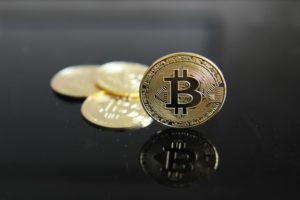It has been a rough 2021 for American wallets. Consumer and producer prices are soaring, making everything, from automobiles to food to shelter, more expensive. Moreover, the post-pandemic economy has not exactly been what policymakers had promised since the “wait two weeks” thing. But at least Americans could retreat to their humble abodes and drown their sorrows and droplets in a cheap box of donuts and wish that the last 18 months never happened. Sorry, but no.
Donut Stop Believing in Inflation
Krispy Kreme recently warned that one of the nation’s best donut brands would become more expensive in the coming weeks. Because butter, flour, milk, and sugar are more expensive, the donut and coffeehouse chain will be raising prices in September. As a result, customers could anticipate that the cost of a single donut would be about $1.
“We are really disciplined on pricing. We are a dozens business, so we do always pay attention to an accessible price point,” said Mike Tattersfield, the CEO of Krispy Kreme, in an interview with CNBC. “So, when you think about the pricing that will happen on a dozen you won’t really see it that much.”
Indeed, as Liberty Nation recently reported, the United Nations’ Food and Agriculture Organization (FAO) reported dramatic increases for cereals, dairy, meat, and other household staples this year. The food sector has been a perfect storm of meteoric inflation, supply interruptions, skyrocketing global demand, natural disasters, and so much more have sent prices to the moon, as the young whippersnappers say on the world wide web.
Is it any surprise that President Joe Biden and his administration enhanced the Supplemental Nutrition Assistance Program (SNAP) benefits by 25%? Food inflation is real, and it is intensifying across the globe in every industry.
Get Your Christmas Shopping Done Now?
Is it time to start stockpiling goods for next year? Industry experts are sounding the alarm that international supply chain disruptions are likely to persist throughout 2022, a trend that would lead to widespread scarcity and higher prices for U.S. households, which is also bad news for the Democrats ahead of the mid-term elections (but that is another story for another day!).
Speaking in an interview with Bloomberg, Karsten Michaelis, head of ocean freight at DHL Global Forwarding Asia Pacific, predicted that freight rates would not stabilize anytime soon as simultaneous demand is escalating ahead of the busy Christmas shopping season. Suffice it to say, a new year will not bring much-needed relief in the marketplace.
“The combination of a year of disruption, lack of containers, port congestions and a shortage of vessels in the right positions is creating a situation where cargo demand far exceeds available capacity.
Capacity planning for the Christmas season has started much earlier this year because capacity is so tight in ocean freight. We are seeing some customers even planning to fly in typical seasonal goods just to make sure they are on stock/in store on time.”
It is no secret that the global shipping industry is in the middle of a crisis, whether it is the record high congestion levels in California or the shortage of steel containers. As the holiday season approaches, market analysts expect ocean freight to remain tight for the rest of 2021 and heading into 2022. So, families may need to get started shopping for little Billy’s Red Ryder, carbine action, 200-shot, range model air rifle with a compass in the stock and this thing that tells time.
Cuba Goes Crypto
A socialist country embracing competing currencies? What a revolutionary idea. Cuba’s central bank announced that it would begin to recognize and regulate cryptocurrencies like bitcoin for “reasons of socioeconomic interest.” The island nation joins another Latin American country, El Salvador, in officially adopting decentralized digital currencies.
According to Resolution 2015, the central bank will start to establish new rules for how to deal with virtual money. In addition, commercial entities that offer crypto-related services will require a license from the institution to maintain operations. Put simply, the crypto industry will be heavily monitored by the authorities in Havana.
But is this a move out of benevolence or authoritarianism? On the surface, it is great that Cubans can engage in the $2 trillion cryptocurrency industry. However, once everyone realizes a socialist and despotic regime is facilitating its prevalence in the impoverished country, the reality sinks in that the government could exploit it for their benefit, such as tracking or wealth confiscation.
That said, others still view this as a positive development because Cuba becomes another state incorporating crypto into the broader economy and also establishing a regulatory framework for bitcoin and its brethren. Ultimately, any time a government or central bank announces a new regulation, it adds another layer of legitimacy in the sector.
~
Read more from Andrew Moran.






